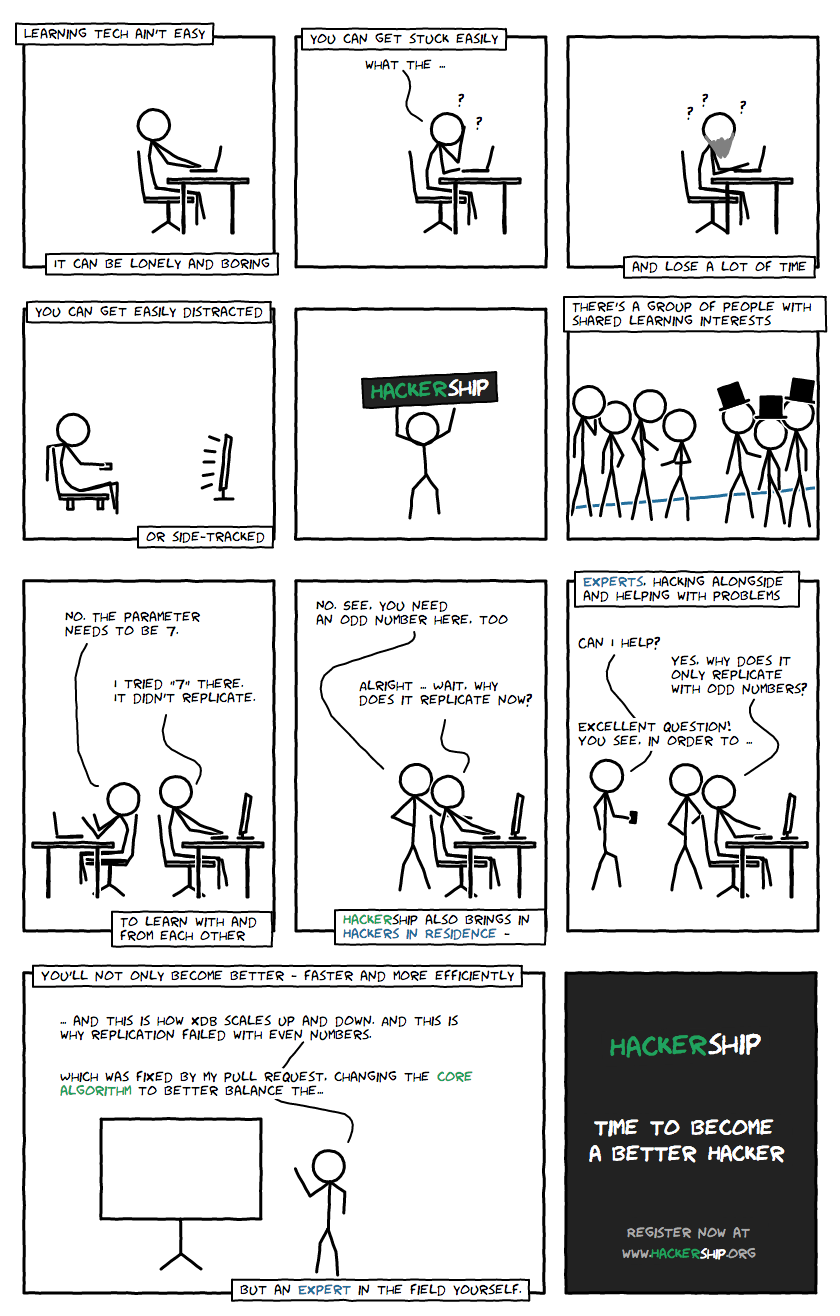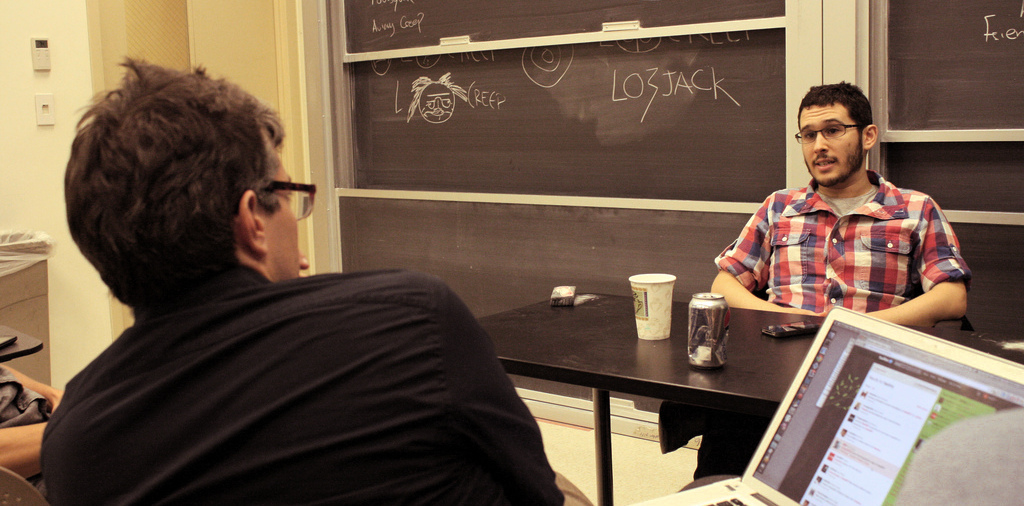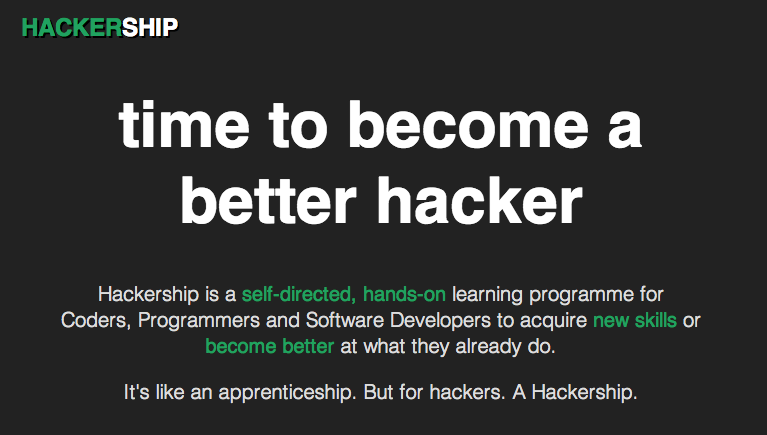Benjamin Kampmann
·
05 December 2013
A vital part of Hackership are the Hackers in Residence, our industry experts, who volunteer their time to help our learners. As the programme is pretty new, so is this role within it, which is why we often get asked, "What does a Hacker in Residence do exactly?". The short answer to this questions is that they help the learners become better hackers, faster, which admittedly is still rather vague. This article intends to answer that question more specifically.
Benjamin Kampmann
·
20 November 2013
We began intro workshops for Batch-0 this Monday, focusing on learning techniques, how to learn the most effectivley and make the most out of our time here at Hackership Batch-0. One of the suggestions was to keep a good old learning journal. And while some may keep that for themselves, a few have decided to share those with the world and document their learning process and hackership experience on public blogs.
Benjamin Kampmann,
Rachel Uwa
·
22 October 2013
There are many names for what we do, with coder, programmer and software developer being the most often used. So why then did we chose the most commonly misunderstood term of all? Because no other term captures what we are building quite like "Hacker" does. Hackership is not just some place where you learn to code better, it's about more than that.
Benjamin Kampmann
·
17 September 2013
We are very happy to share the following news with you: Before we'll be running Hackership next year, there will be an experimental Batch, the "Batch-0" [/băch zē'rō/] for six weeks this November. The idea is to use the time to try out concepts and ideas about the programme, such as inviting hackers in residence and matching groups of people with similar interests. All that is made possible by betahaus, who will be supporting us by hosting this experimental batch in their space.
Benjamin Kampmann,
Rachel Uwa
·
04 September 2013
A vital question to ask when running a full-time programme is how it will be paid for. Even thought the hackers-in-residence volunteer their time for free, one still needs to pay for a venue with facilities, people to take care of it and a staff to run the programme. Today, we want to explain the background of why we think the alumni-support model is the best way to do this and how you will be able to pay for your hackership without any problem.
Benjamin Kampmann
·
30 August 2013
Just posted a new explanation of Hackership on the website -- XKCD-style of course:

//
Amélie Anglade,
Benjamin Kampmann
·
19 August 2013
We've already talked about us investigating on in-depth programmes before, but now it is official: The OpenTechSchool in Berlin will offer a full-time learning Programme called Hackership. Similar to the programme the Hacker School in New York is running, Hackership is a 4-days-per-week self-directed peer-learning programme going for several weeks to become a better programmer.






